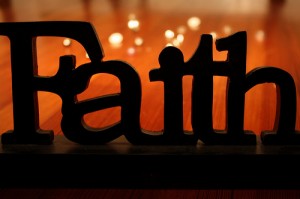 “What we’re seeing today is a secular liberalism that wants to expand the prohibition of establishment to silence articulate religious voices and disenfranchise religiously motivated voters, and at the same time to narrow the scope of free exercise so that the new secular morality can reign over American society unimpeded.”??
“What we’re seeing today is a secular liberalism that wants to expand the prohibition of establishment to silence articulate religious voices and disenfranchise religiously motivated voters, and at the same time to narrow the scope of free exercise so that the new secular morality can reign over American society unimpeded.”??
So said First Things editor R.R. Reno in a speech delivered to a Hillsdale College leadership seminar this past February. In his address, Reno tracks the hostility that the Obama administration, the courts, and the ascendant “Nones” (those who, when asked in surveys to identify their religious affiliation, indicate “none”) are exhibiting toward religious liberty in America. And he identifies the threat that this hostility poses to our culture and our Constitution. It’s a very important speech. Thankfully, in it he also talks about how to reverse the trend.
Reading through Reno’s speech, it is easy to feel at once overwhelmed, angry, and discouraged. Forces antagonistic to religion dominate our courtrooms, our classrooms, and that most potent platform of public influence, the entertainment industry. Stridently ideological and convinced that the forces of reason and progress are on their side, these secular shapers of culture will not be satisfied until every last vestige of religious influence is exorcised from the public square. These individuals reject the fact that the Christian religion played an integral role in the shaping of America’s political traditions and the spirit of liberty and equality that is unique among nations. They do not understand that radically marginalizing religion will undermine the institutions essential to keeping our country strong and free.
And, as Reno predicts, these antagonists are likely to be successful in the short term. No doubt, this is due to the frog-in-the-kettle effect. The saying goes, if you put a frog in a kettle of water and set it on the stove, the frog will not respond to the increasing temperature of the water until it is too late. There is still a strong contingent of believers in America. We have the numbers on our side. The problem is, not all of us are paying attention. This is understandable. Life is busy, and we devote our energies towards the things that directly impact our day to day lives. We work. We take our kids to soccer practice. We help with book reports and college applications. We tend to aging relatives and prepare meals for sick neighbors.
But, while we’ve been busy living our lives, the sands have been shifting under our feet. It’s quite possible that the world our grandchildren live in will be one in which the public profession of religious faith will be culturally taboo, if not outright illegal. Churches will not be able to deny the rites of marriage to same-sex couples and parents will not be allowed to raise up their children according to the moral dictates of their faith. Religious employers will not be permitted to allow their beliefs to influence the way they run their businesses. There won’t be any positive portrayals of religion on television or in the movies. Public prayer will be a relic of a bygone era.
If the “Nones” are successful in obfuscating the once-universal recognition that mankind is created in the image of God and that there is such a thing as transcendent truth, then America will be defenseless against the corrosive and fatalistic influences of moral relativism and social Darwinism. The land of the free and home of the brave will be degraded and transformed into a place where the weak and vulnerable are exploited and power trumps principle. Utilitarianism will triumph and our brave new secular world will look like Soviet Russia or Nazi Germany.
Make no mistake, all this will come to pass if people of faith do not come together and send the message that we will not surrender our rights and America’s future without a fight.? Reno lays out the ways in which faithful Americans must engage the “Nones” if we are to turn the tide of religious antagonism currently holding sway. He says we must fight for religious liberty in the courts, in the classroom, and in the court of public opinion. We must make the point that religious belief is “the most secure guarantee of freedom.” And finally, we must unite with other believers in defense of our “divine cause.”
Happily, Reno’s speech ends – as it should – on a hopeful note:
“Right now the Nones seem to have the upper hand in America. But what seems powerful is not always so. If I had to bet on Harvard or the Catholic Church, Yale or the Mennonites in Goshen, Indiana, the New York Times or yeshivas in Brooklyn, I wouldn’t hesitate. Over the long haul, religious faith has proven itself the most powerful and enduring force in human history.”??
Amen.



